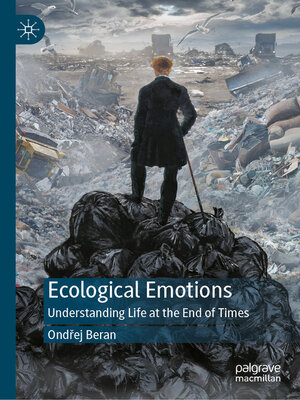Ecological Emotions
ebook ∣ Understanding Life at the End of Times · Religion and Philosophy
By Ondřej Beran

Sign up to save your library
With an OverDrive account, you can save your favorite libraries for at-a-glance information about availability. Find out more about OverDrive accounts.
Find this title in Libby, the library reading app by OverDrive.



Search for a digital library with this title
Title found at these libraries:
| Library Name | Distance |
|---|---|
| Loading... |
In this book, Ondřej Beran explores the various emotions that arise in response to the perceived and observed climate crisis. He provides a focused philosophical overview of ecological emotions (mostly negative ones, such as grief) and reflects on some of their characteristics. He also addresses the nature of their interconnection, and their status as potentially lucid and justified recognitions of a compromised value. In general, Beran’s interest is in thinking of these emotions as peculiar forms of understanding, and in exploring what these forms of understanding show us about living in a world that we see as seriously damaged or under serious risk. He argues that these forms of understanding are cultivated and expressed in various ways and can take very diverse, even idiosyncratic shapes. Ultimately, he highlights the important role played by the reflective distance in many of our emotional responses to the climate crisis, as they also incorporate and shape how we understand our individual lives. Special attention is paid here to “light-heartedly pessimistic” takes on one life, in relation to the climate crisis, and to a critical reflection of the problematic aspects of this reflection, especially its enabling conditions (which would represent natural openings for further discussions, whether post-colonial, Marxist, feminist, or general political critiques).
The book is, methodologically, seated primarily in the tradition of post-Wittgensteinian philosophy (ethics), building upon previous theoretical work on examples in philosophy. But it relies on other resources as well: cognitivist approaches to emotion (Solomon, Nussbaum, Rorty), existential phenomenology (Ratcliffe), or Adornoian dialectics.







